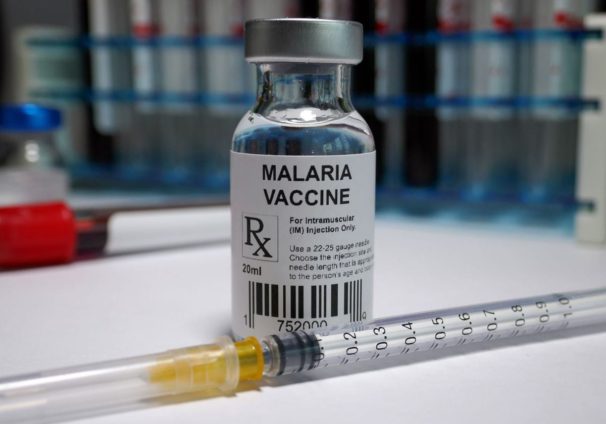A keenly-watched malaria vaccine from Oxford University has secured its first approval, in Ghana, as the African country ramps up efforts to combat the mosquito-borne disease that kills a child every minute.
The effort is one of several focused on addressing the disease that kills over 600,000 each year, most of them children in Africa.
The complicated structure and lifecycle of the malaria parasite has long stymied efforts to develop vaccines.
After decades of work, the first malaria vaccine, Mosquirix from British drugmaker GSK, was last year endorsed by the World Health Organization (WHO), but a lack of funding and commercial potential has thwarted the company's capacity to produce as many doses as needed.
The Oxford vaccine, which has secured regulatory approval in the age group at highest risk of death from malaria - children aged 5 months to 36 months - has a manufacturing advantage thanks to a deal with Serum Institute of India to produce up to 200 million doses annually.
In contrast, GSK has committed to produce up to 15 million doses of Mosquirix every year through 2028, well under the roughly 100 million doses a year of the four-dose vaccine the WHO says is needed long-term to cover around 25 million children.
Mid-stage data from the Oxford vaccine trial involving more than 400 young children was published in a medical journal in September.
Vaccine effectiveness was 80% in the group that received a higher dose of the immune-boosting adjuvant component of the vaccine, and 70% in the lower-dose adjuvant group, at 12 months following the fourth dose. The doses were administered ahead of the peak malaria season in Burkina Faso.
Data from an ongoing phase III clinical trial in Burkina Faso, Kenya, Mali and Tanzania that has enrolled 4,800 children is expected to be published in a medical journal in the coming months.
However, late-stage data - which suggests a similar vaccine performance as in the phase II trial - has been shared with regulatory authorities over the last six months, Oxford scientist Adrian Hill said.
Childhood vaccines in Africa are typically paid for by international organisations such as Gavi and UNICEF after they have been backed by the World Health Organisation (WHO).
This is the first time a major vaccine has been approved first in an African country, before rich nations, Hill added, noting that it was unusual that a regulatory authority in Africa had reviewed the data quicker than the WHO.
"Particularly since COVID, African regulators have been taking a much more proactive stance, they've been saying...we don't want to be last in the queue."
Latest Stories
-
Ghanaian pilgrim dies while performing Hajj in Makkah
18 minutes -
2 arrested, one on the run for stealing iron rods from Agenda 111 site
20 minutes -
Mahama announces plans to upgrade Greater Accra Regional Hospital to Teaching Hospital
24 minutes -
GHS takes measures to check Mpox outbreak
1 hour -
Five dead after tornado tears through St Louis
1 hour -
Real Madrid confirm Dean Huijsen signing from Bournemouth
2 hours -
Delegates walk out of FIFA congress after Infantino arrives late from Trump trip
2 hours -
Mahama must seek legislative backing for Code of Conduct – Ahiagbah
2 hours -
John-Paul Adjadeh: The visionary behind Ghana’s Premier alumni games
3 hours -
Israel launches major offensive to ‘seize and control’ areas of Gaza
3 hours -
32 youth receive business starter packs from Ghana Grows
3 hours -
NSA Boss visits reptile-breeding Azumah Nelson Youth Centre
3 hours -
It is unfair to blame gov’t for power crisis – Prof Sharif Khalid
3 hours -
Unpredictable cedi appreciation could hurt businesses – Kenneth Thompson warns
3 hours -
Cedi appreciation: We must build reserves that allow long-term predictability – Prof Bopkin
3 hours

